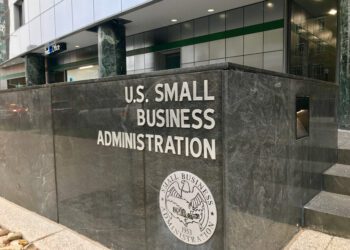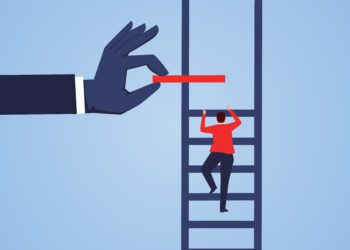Start-ups play an increasingly important role in the global economy, transforming innovative ideas into real-world solutions.
But founding a start-up isn’t easy. Less than 1% of start-ups receive funding from external investors. And only a handful of these ever become a unicorn or achieve a successful exit.
So, what’s the secret to turning bright ideas into successful start-ups?
We spoke with 14 entrepreneurs in the World Economic Forum’s Technology Pioneers community about how they founded their companies and what they learned.
Start with purpose
Sean Hinton, Founder and Chief Executive Officer, SkyHive
Prior to launching SkyHive, a cloud-based workforce management and reskilling software provider, in 2017 I was a very successful corporate CEO. In 2016, I had no aspirations to become a founder and was perfectly content running the company I had been hired into. In early 2016 I attended a conference in the Middle East, and on day one of that conference a group of Syrian women spoke on a panel. They had escaped Syria and were living in the UN refugee camp in Lebanon. For an hour they spoke to us about the atrocities of the treatment of women during the civil war in Syria.
I had a stream of consciousness during that hour, and when the panel ended I knew right then and there that I had to dedicate the rest of my career to helping the world; that was the genesis of SkyHive. The most important thing I learned from that experience was the true definition of purpose and how important it is to live and work with purpose.
Ensure business is a force for good
Joaquin Villalba, Chief Executive Officer and Co-Founder, Nextail
The fashion industry, while beautiful and much beloved, has inherited many operational efficiencies, from a reliance on legacy approaches to aligning supply and demand. Given the complexity of today’s retailing, limited tools make it impossible to meet customer demands and reach business goals, and, worst of all, they often lead to unnecessary waste.
I have a passion for improving complex processes. So, after a few years in fashion as Head of European logistics of Inditex, I identified an opportunity to push the industry forward. By placing tech and data science at the heart of decision-making, I knew we could better meet demand through improved predictions and automated decision-making.
Since founding Nextail, a smart retail platform that empowers fashion merchandisers, in 2014, our mission has been to make the retail world a better, more sustainable place. We help retailers become more agile and predictive so they can use less of the world’s resources while maintaining the same, or better, product availability. My greatest lesson has been that business truly can be used as a force for good. In fact, it’s been easy to create a team of like-minded industry professionals with a passion for data and tech that want to make a positive, tangible impact on the world.
Promote human-machine collaboration
Andreas Koenig, Chief Executive Officer, Proglove
Things changed dramatically for ProGlove, a developer of a smart glove designed specifically for industrial applications, when co-founder Paul Günther made several critical observations during a guided tour through BMW’s central plant: Barcode scanning literally happens one million times per day and plant, and almost everybody wears gloves when working.
What if there was a way to connect the barcode scanner with the glove? This would eliminate the time needed to pick up and drop off the scanner. To make a long story short: His answer was ProGlove’s wearable barcode scanner which saves up to 4 seconds per scan. This accounts for 4 million saved seconds per day and plant. In addition, this translates to more than $4 million saved per day because one second is worth a little more than one dollar in the automotive industry. Needless, to say the idea works almost everywhere where barcode scanning is a factor.
So, what are the learning here?
- Human centered design augments the workforce and delivers immediate results.
- Micro-efficiencies are extremely powerful because they can scale massively and are more likely to be implemented.
- Technology is most valuable when it promotes human-machine collaboration.
Learn what you do best. Repeat.
Ben Lamm, Founder and Board Member, Hypergiant
I’ve been a serial entrepreneur now more times than I can count. I knew the day I set foot in my first job that I was never going to be happy unless I was chasing down my vision of the future and building companies that would enable that future to be realized.
My most recent company, Hypergiant, an enterprise artificial intelligence (AI) company focused on critical infrastructure, space and defense, is a clear product of that drive. It was founded because I could see that industries that were foundational to society (space, defense, critical infrastructure) were not scaling like other businesses because they were not employing the latest technology (namely AI). In short, we were nowhere near the future of our dreams because the systems running our worlds didn’t have the technology to power those dream ideas of flying cars, living in space and underwater homes.
Building Hypergiant has been an honor but the biggest lesson I’ve learned is in handing it over to the new CEO. The secret to doing something in a serial fashion is knowing when to step away. Hypergiant has become the realization of my vision – now it’s time for it to scale. And scale beyond the initial growth path just isn’t as interesting to me as building something new. So my big lesson? Learn what you do best. Repeat that and don’t be afraid to let others take over.
Be open to new opportunities
Katrina Donaghy, Chief Executive Officer and Co-Founder, Civic Ledger
Mapping the blockchain and bitcoin ecosystem in 2015 was an easy feat. The ecosystem was small, and I could see the networks emerging. I learned so much from Primavera De Fillipi, whose focus on blockchain technology from the governance and regulatory lens was brilliant and so different from the discourse at that time. Vinay Gupta was another person I followed with great interest.
But it was Leanne Kemp, Founder and CEO of Everledger (Technology Pioneer 2018) who challenged me to do something with blockchain technology. It was because of Leanne that in April 2016 I went to my first Bitcoin meetup, where I met my soon to be co-founder, Lucas Cullen. Civic Ledger, a provider of blockchain solutions for government and industry ecosystems, was founded a few months later. This month Civic Ledger will commence working with Everledger on the Australian Government’s Critical Minerals blockchain project – the largest funded blockchain project to date.
So, the most important learning from my founding experience, is that any opportunity is waiting for you if you are willing to see the path and do something about it.
Solve the problems that matter most to you
Tania Coke, Chief Executive Officer, Tellus You Care
Before Kevin Hsu and I became co-founders of Tellus You Care, which aims to improve eldercare with dignity and privacy by combining advanced sensors with AI, we would meet every month or so and discuss articles, research and technology. From the beginning, we were focused on hardware and health technology, and it’s one of the reasons we became fast friends at Stanford. I remember the exact date, time and dining hall we were sitting in when we discussed the idea for Tellus.
What stood out from our other conversations is that we were discussing a problem we both experienced firsthand: how we couldn’t find suitable technology to help our aging family members. When I left that conversation, I could not sleep and started writing out a business plan. By the time I spoke with Kevin the next day, he had started an engineering plan. We knew that Tellus is what we’d be working on for the foreseeable future.
Look for the potential of tech
Andre Yoon, Chief Executive Officer and Co-Founder, MakinaRocks
Our company name, MakinaRocks, a start-up specializing in industrial machine intelligence, means to transform technology and the industrial sector. Working in the manufacturing sector as IT and business specialists, my co-founders and I saw the potential of AI and the implications it had for the manufacturing industry and started the company to help transform the industrial sector. In our first venture, we were able to successfully improve anomaly detection performance with our multivariate autoencoder-based approach, and one by one, we tackled various challenges of the industry.
However, we realized that to unlock the unlimited potential of AI, rather than tackling the challenges ourselves, we needed to empower the domain experts of the manufacturing industry with the tools to create and innovate. Thus, our ML platform was born—a platform built incorporating the use cases and expertise we had acquired during the earlier stages of our growth. With our ML platform, we hope to help further advance the industry and continue to make technology intelligent and deliver it as transformative solutions.
Test your assumptions
Audrey Cheng, Chief Executive Officer and Founder, Moringa School
I started Moringa School, a multi-disciplinary learning accelerator committed to closing the skills gap in Africa’s job market, in 2014 after being a frustrated recipient of traditional education for more than 15 years. While I worked on supporting entrepreneurs at Savannah Fund, a venture capital firm investing in early-stage tech companies across Africa, I found myself repeatedly brought back to a central challenge they faced around finding ready-to-hire talent. That led to numerous conversations, which converted into a deep-rooted passion for solving a pervasive problem which would lead to catalytic change among individuals and the broader tech ecosystem.
Through Moringa, a key lesson I’ve taken away is how critical it is to test my assumptions consistently. Knowledge is constantly evolving and never fully set in stone. Our stakeholders were also changing in mindset, behavior and beliefs, and we needed to continuously check in to make sure our solution was solving an important problem in a meaningful way.
By Saemoon Yoon
About the author: Saemoon Yoon is Community Lead, Technology Pioneers, at the World Economic Forum.
Read the rest of the article at https://www.weforum.org/agenda/2021/09/14-lessons-from-entrepreneurs-on-starting-your-own-business-0c80163aed/












